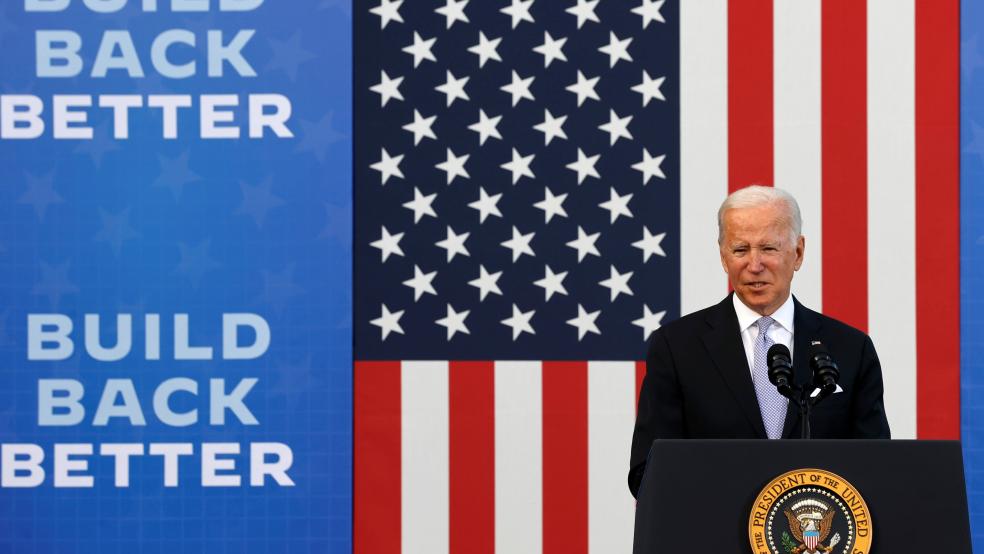With inflation running hotter than expected by many economists, some lawmakers have expressed concerns that President Joe Biden’s $1.85 trillion Build Back Better social spending plan currently making its way through Congress will only make matters worse by pumping more money into an already overheated economy. But according to analysts at two leading rating agencies, those worries may be overblown.
Charles Seville, senior director at Fitch Ratings, told Reuters that the bipartisan infrastructure package Biden signed into law this week and the larger social spending bill still under debate in Congress “will neither boost nor quell inflation much in the short-run.”
Government spending will increase demand less in 2022 than in 2021, Seville said, and in the long run, increased spending on things like child care will boost labor productivity.
William Foster, vice president and senior credit officer at Moody's Investors Service, echoed that view, saying that the two bills stretch spending out over a period of years and “should not have any real material impact on inflation.”
Mark Zandi, chief economist at Moody's Analytics, which operates independently from Moody’s ratings unit, told Reuters that in his view the spending bills would actually help control inflation. “The bills do not add to inflation pressures, as the policies help to lift long-term economic growth via stronger productivity and labor force growth, and thus take the edge off of inflation.”
Zandi also said that the bills would not add to the deficit. “The bills are largely paid for through higher taxes on multinational corporations and well-to-do households, and more than paid for if the benefit of the added growth and the resulting impact on the government's fiscal situation are considered.”
On that point, Fitch’s Seville disagreed. “The deficit will still narrow in FY 2022 as pandemic relief spending drops out and the economic recovery boosts tax revenues,” he told Reuters. “But the legislation (Build Back Better) does not sustainably fund all the initiatives, particularly if these are extended and don't sunset, meaning that they will be funded by greater borrowing.”
But, but, but: Don’t expect comments from these analysts to end the debate on the matter. Plenty of economists are worried about the potentially inflationary effects of the enacted and proposed spending, even if it is stretched out over five or 10 years. And there’s no indication that comments from economists are doing much to change the minds of lawmakers like Sen. Joe Manchin of West Virginia, a key Democrat who has hinted he might oppose the Build Back Better bill on the grounds that it would fuel inflation.
Writing on Bloomberg’s opinion page Tuesday, economist Karl W. Smith summarized the more pessimistic view: “The truth is that Build Back Better would increase inflationary pressures in the near and medium terms. Given the immediate and sustained impact on inflation that this year’s stimulus produced, it’s hard to see how the legislation wouldn’t set the stage for either permanently higher inflation or a sharp increase in interest rates as the Fed attempted to bring inflation under control.”




